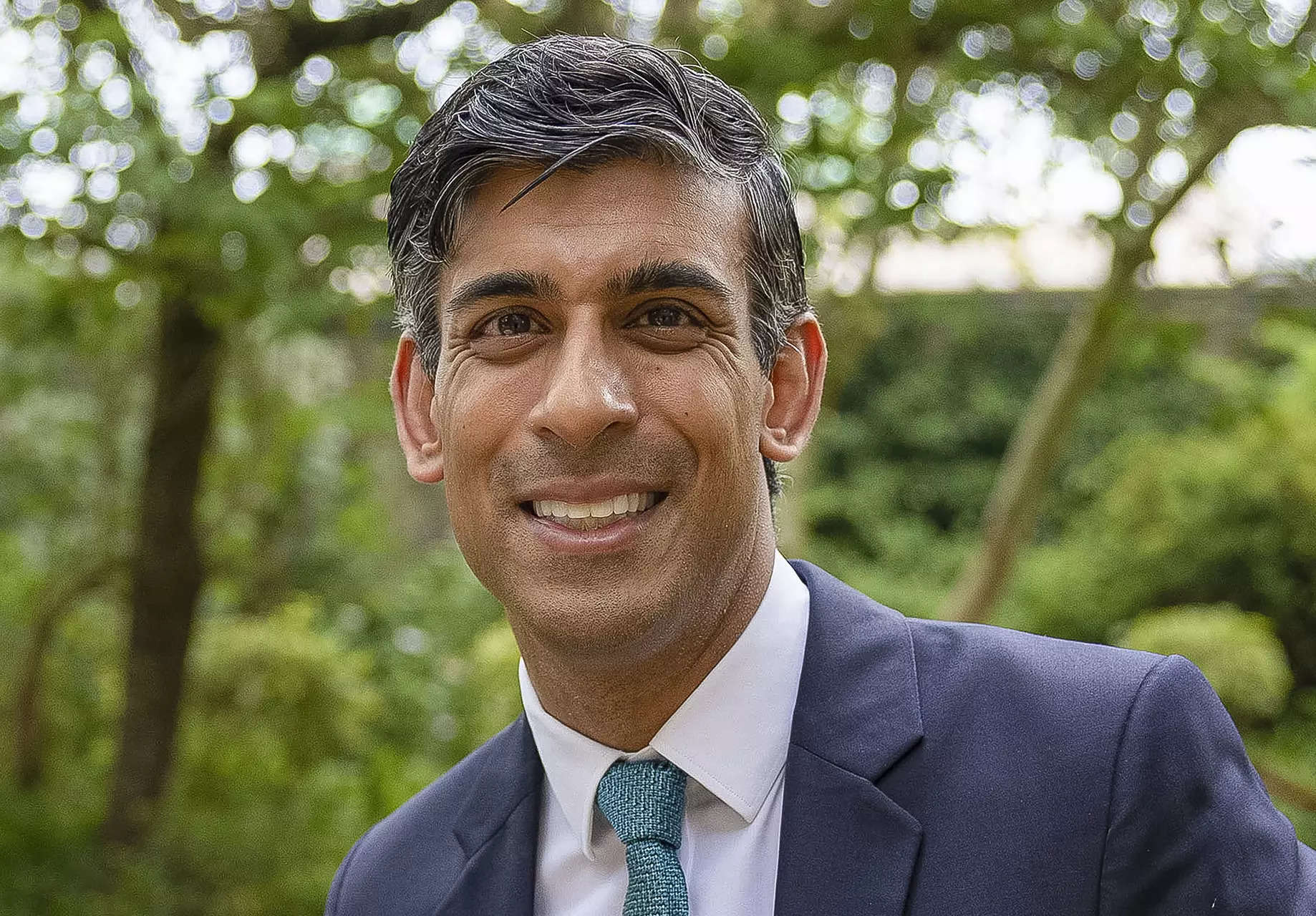Business
Confident of striking a modern, forward-looking free trade agreement with India: British PM Rishi Sunak

[ad_1]
NEW DELHI: British Prime Minister Rishi Sunak on Wednesday said there was “still some way to go” for a free trade pact with India to be finalised, but appeared confident that the final outcome will be a “forward-looking” and “modern” deal that would benefit both sides and facilitate shared ambition of doubling trade by 2030.
In an exclusive interview to PTI, the first Indian-origin British prime minister said the trade deal could help Indian exporters gain access to the British market, including India’s 48 million small and medium enterprises.
“A modern, forward-looking free trade agreement can put us firmly on the path to our shared ambition of doubling UK-India trade by 2030,” Sunak said.
“It’s very exciting to have this opportunity to expand our trade relationship, and to be the first European country that India has negotiated a free trade deal with,” he said.
The prime minister’s responses to PTI’s questions were sent by email.
India and the UK are currently negotiating the ambitious free trade agreement that is expected to open new vistas of economic engagement between the two countries.
“A trade deal could help Indian exporters gain access to the UK market, including India’s 48 million small and medium enterprises. We want a deal that slashes tariffs and red tape, helping Indian consumers and businesses get easier access to the UK goods they already enjoy,” he said.
The British premier said good progress has been made in the negotiations and that there is still some way to go to finalise the pact.
“We’ve made good progress in closing chapters. Round 12 of negotiations took place last month and were the hardest yet — covering complex, sensitive, and commercially meaningful issues including goods, services, and investment,” he said.
“There is still some way to go, but I’m confident we’ll be able to agree to a deal which works for both the UK and India,” he said.
“And, of course, we hope to go further still, including by finalising the first Free Trade Agreement India has ever agreed with a European country. I remain confident that we can strike a deal which benefits both the UK and India.”
The British prime minister said every bit of the trade between the two countries represents new jobs, more choice for consumers and a stronger link between the British and Indian people.
“Our trade relationship is already worth Rs 3.5 lakh crore a year — I want that number to be even higher. Every bit of trade between our countries represents new jobs, more choice for consumers and a stronger link between the British and Indian people,” he said.
In April last year, the two sides had set a Diwali deadline for concluding the free trade agreement but the deal could not be finalised in view of differences over certain issues as well as political developments in the UK.
The India-UK relationship was elevated to a Comprehensive Strategic Partnership during the India-UK virtual summit held between Prime Minister Narendra Modi and his then British counterpart Boris Johnson in May 2021.
At the summit, the two sides adopted a 10-year roadmap to expand ties in the key areas of trade and economy, defence and security, climate change and people-to-people connections among others.
In an exclusive interview to PTI, the first Indian-origin British prime minister said the trade deal could help Indian exporters gain access to the British market, including India’s 48 million small and medium enterprises.
“A modern, forward-looking free trade agreement can put us firmly on the path to our shared ambition of doubling UK-India trade by 2030,” Sunak said.
“It’s very exciting to have this opportunity to expand our trade relationship, and to be the first European country that India has negotiated a free trade deal with,” he said.
The prime minister’s responses to PTI’s questions were sent by email.
India and the UK are currently negotiating the ambitious free trade agreement that is expected to open new vistas of economic engagement between the two countries.
“A trade deal could help Indian exporters gain access to the UK market, including India’s 48 million small and medium enterprises. We want a deal that slashes tariffs and red tape, helping Indian consumers and businesses get easier access to the UK goods they already enjoy,” he said.
The British premier said good progress has been made in the negotiations and that there is still some way to go to finalise the pact.
“We’ve made good progress in closing chapters. Round 12 of negotiations took place last month and were the hardest yet — covering complex, sensitive, and commercially meaningful issues including goods, services, and investment,” he said.
“There is still some way to go, but I’m confident we’ll be able to agree to a deal which works for both the UK and India,” he said.
“And, of course, we hope to go further still, including by finalising the first Free Trade Agreement India has ever agreed with a European country. I remain confident that we can strike a deal which benefits both the UK and India.”
The British prime minister said every bit of the trade between the two countries represents new jobs, more choice for consumers and a stronger link between the British and Indian people.
“Our trade relationship is already worth Rs 3.5 lakh crore a year — I want that number to be even higher. Every bit of trade between our countries represents new jobs, more choice for consumers and a stronger link between the British and Indian people,” he said.
In April last year, the two sides had set a Diwali deadline for concluding the free trade agreement but the deal could not be finalised in view of differences over certain issues as well as political developments in the UK.
The India-UK relationship was elevated to a Comprehensive Strategic Partnership during the India-UK virtual summit held between Prime Minister Narendra Modi and his then British counterpart Boris Johnson in May 2021.
At the summit, the two sides adopted a 10-year roadmap to expand ties in the key areas of trade and economy, defence and security, climate change and people-to-people connections among others.
[ad_2]
Source link





